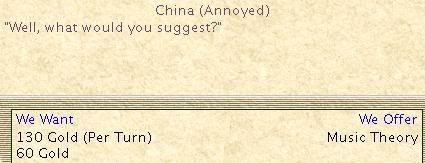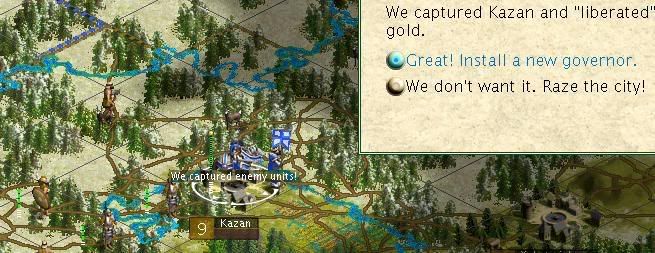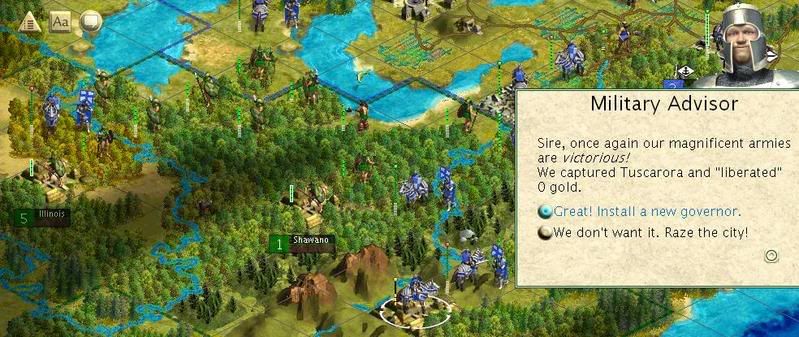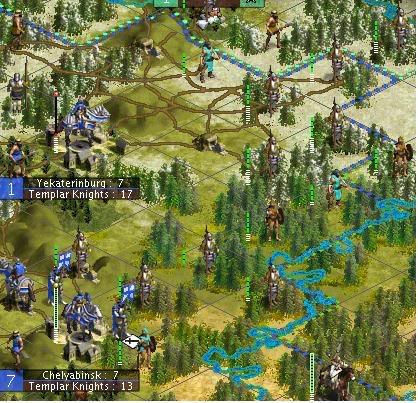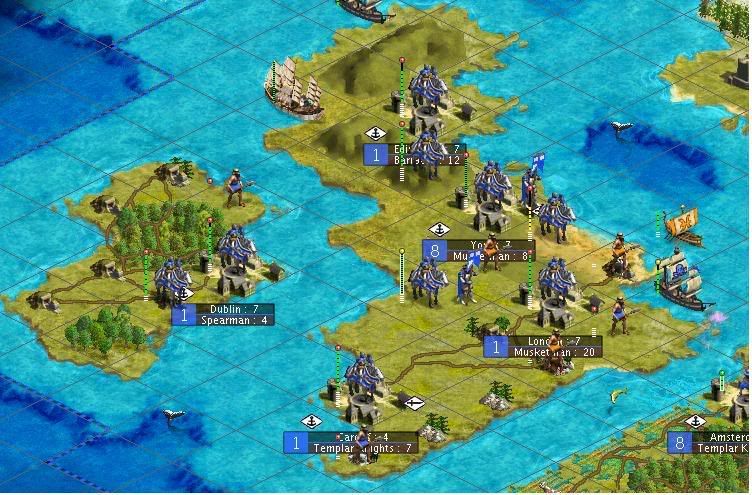Tani Coyote
Son of Huehuecoyotl
- Joined
- May 28, 2007
- Messages
- 15,195
=== 310 BC ===
In the IBT, the world recognises German power. The Persians and Arabs both come to us, wanting us to intervene in their respective conflicts - the Perso-Indian and Arab-Egyptian wars. We send foreign aid to Persia, and plan to supply them with iron if need be - they become capable of fielding pikemen, which would slow the Indian advance slightly. In the Arab-Egyptian war, Memphis finally falls. We intended to invade Egypt as soon as possible, in order to secure the region against the growing power of the Arab Caliphate.
The war in the Americas raged on. Oneida was besieged by hordes in the tens and possibly hundreds of thousands. All over the Eastern coasts, German ships killed Iroquois soldiers with gunfire. 400 Iroquois were slaughtered near the Potomac river.
Oneida itself was threatened by 7300 Iroquois soldiers. What few ready Templars we had were mustered, and the Asian fleet opened fire. This was reduced to 2000 men, all gravely injured and immediately war weary as they saw their comrades explode in front of their eyes. 400 were cut to ribbons by a German Templar attack force.
26,000 Iroquois soldiers were en route to Oneida, and had foolishly positioned themselves near the coast. As they rested in their beds one night, they did not notice a light approaching from the distance...the lights of German ship. The force was reduced to 21,600 men. This would not hinder their advance, but when they reached the enormous amount of artillery Oneida boasted - they would realise just how much numbers counted in the war on Germany.
In Tobacco, 800 Iroquois were killed, while 400 Templars were killed in the attack. At no casualties, another 800 Iroquois were killed - and the last urban Iroquois city fell into the German Empire's hands.

The Iroquois states of the South had aligned themselves with the Cayuga guerillas - if only temporarily. The greater German enemy had to be crushed, and so they met in the city that held half the population of the Free Iroquois - Tuscarora. The Illionois, Shawano, Cayuga and Tuscarora peoples discussed how to crush the German foe - an attack on Oneida was the most obvious. Oneida was the blood vessel linking Germany to the ocean - where all it's valuable supplies came from. The Iroquois leaders put aside their differences, and agreed to throw everything they had at the might of the First Reich.
--
Peacefully, Newfoundland and the Iroquois conquests were linked by a new settlement - Wilhelmstadt(officially new Wilhelmstadt.) Rebuilding the city was a sign of German defiance, and how Germany had finally eliminated the Iroquois threat.

The German Empire also donated large amounts of funds - nearly 1/4 of it's on-hand treasury - to the Carthaginian provinces, primarily to finance the mass construction of harbors in major cities. Slaves worked to rebuild the roads between cities. With foreign aid, strong soldiers(Templars), and a lack of bombardment and enemies, the former Carthaginian homeland was poised to grow and prosper, to become one of the greatest provinces of the empire.
--
More troops were also shipped off to the Americas - plenty of Templars to refill the ranks of our shrinking force, musketmen to maintain our defenses, and cannons to add to what the Pirate Ships carried. The Pirate Ships themselves would also prove an asset for the campaign in North America.
In the IBT, the world recognises German power. The Persians and Arabs both come to us, wanting us to intervene in their respective conflicts - the Perso-Indian and Arab-Egyptian wars. We send foreign aid to Persia, and plan to supply them with iron if need be - they become capable of fielding pikemen, which would slow the Indian advance slightly. In the Arab-Egyptian war, Memphis finally falls. We intended to invade Egypt as soon as possible, in order to secure the region against the growing power of the Arab Caliphate.
The war in the Americas raged on. Oneida was besieged by hordes in the tens and possibly hundreds of thousands. All over the Eastern coasts, German ships killed Iroquois soldiers with gunfire. 400 Iroquois were slaughtered near the Potomac river.
Oneida itself was threatened by 7300 Iroquois soldiers. What few ready Templars we had were mustered, and the Asian fleet opened fire. This was reduced to 2000 men, all gravely injured and immediately war weary as they saw their comrades explode in front of their eyes. 400 were cut to ribbons by a German Templar attack force.
26,000 Iroquois soldiers were en route to Oneida, and had foolishly positioned themselves near the coast. As they rested in their beds one night, they did not notice a light approaching from the distance...the lights of German ship. The force was reduced to 21,600 men. This would not hinder their advance, but when they reached the enormous amount of artillery Oneida boasted - they would realise just how much numbers counted in the war on Germany.
In Tobacco, 800 Iroquois were killed, while 400 Templars were killed in the attack. At no casualties, another 800 Iroquois were killed - and the last urban Iroquois city fell into the German Empire's hands.

The Iroquois states of the South had aligned themselves with the Cayuga guerillas - if only temporarily. The greater German enemy had to be crushed, and so they met in the city that held half the population of the Free Iroquois - Tuscarora. The Illionois, Shawano, Cayuga and Tuscarora peoples discussed how to crush the German foe - an attack on Oneida was the most obvious. Oneida was the blood vessel linking Germany to the ocean - where all it's valuable supplies came from. The Iroquois leaders put aside their differences, and agreed to throw everything they had at the might of the First Reich.
--
Peacefully, Newfoundland and the Iroquois conquests were linked by a new settlement - Wilhelmstadt(officially new Wilhelmstadt.) Rebuilding the city was a sign of German defiance, and how Germany had finally eliminated the Iroquois threat.

The German Empire also donated large amounts of funds - nearly 1/4 of it's on-hand treasury - to the Carthaginian provinces, primarily to finance the mass construction of harbors in major cities. Slaves worked to rebuild the roads between cities. With foreign aid, strong soldiers(Templars), and a lack of bombardment and enemies, the former Carthaginian homeland was poised to grow and prosper, to become one of the greatest provinces of the empire.
--
More troops were also shipped off to the Americas - plenty of Templars to refill the ranks of our shrinking force, musketmen to maintain our defenses, and cannons to add to what the Pirate Ships carried. The Pirate Ships themselves would also prove an asset for the campaign in North America.




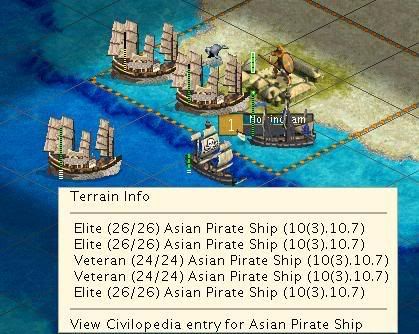
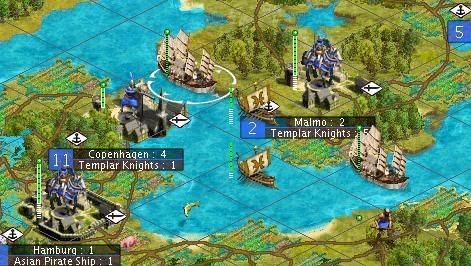


 )
)













